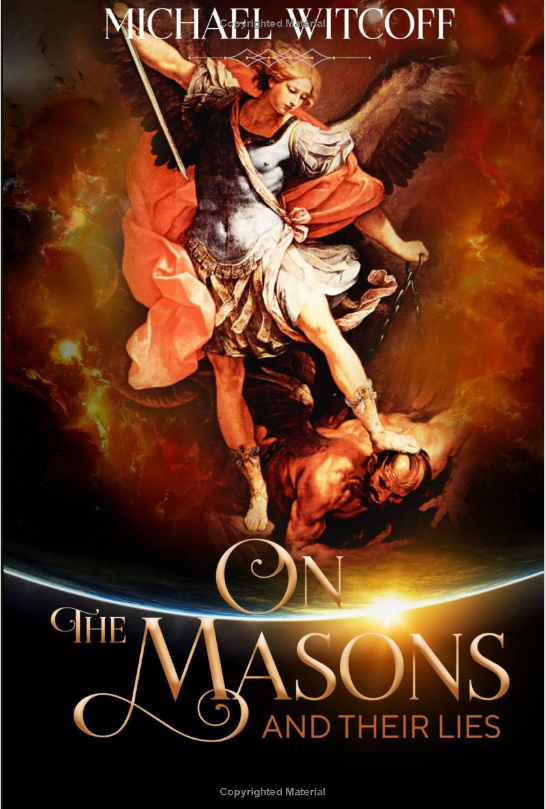“I first published On The Masons And Their Lies on Pentecost Sunday of 2018. Due to the conversations in my local parish and my efforts online, it slowly began to circulate throughout the Orthodox Christian community. My original intentions in publishing it were to help inform Christians about the spiritual dangers of Freemasonry and to bring curious Freemasons out of the Lodge and into the Church.
Its initial reception was small, but overwhelmingly positive. I realized it was a topic of interest for many people, and the response validated the amount of time and effort I’d put into it to begin with.
However, I received an email from an Orthodox Priest who told me that he’d been struggling with the effects of the Masonic worldview on the hearts and minds of his parishioners. He informed me that, at one point in the history of his parish, nearly every adult male parishioner was also a member of a Masonic Lodge. That un-Christian and anti-Orthodox Masonic mindset, he said, has persisted over the generations – and has formed a barrier to hearing and living the saving Gospel of Jesus Christ.
As a result of the correspondence between he and I on this topic, I decided to reorganize the material as a ‘handbook’ for priests and pastors struggling with this issue. I wanted them to have a ready resource on hand with which to combat the Masonic specter among their laity, giving it out as necessary for careful study and consideration. Therefore, I have completely rearranged the material in this book – and I added many parts – in order to best serve that end.
Like the first edition, the second one is written from an Orthodox Christian perspective – but in a way that can be of use to all who call themselves Christians. At various times throughout the book, I will refer to either big-O ‘Orthodoxy’ or small-o ‘orthodoxy.’ This distinction is meant to distinguish between those aspects of Christianity which are exclusive to the Orthodox Church, and those beliefs and practices which are common to most mainstream groups.
Many Christian groups have made official statements regarding Freemasonry and whether membership in a Lodge is compatible with their views. I have compiled many such statements into the final chapter of this book, titled Masonry And The Churches.
Reorganizing this book meant transforming it from a basic primer into a deeper and fuller exploration of all of Masonry’s various anti-Christian sentiments. Many such sentiments are so deeply hidden that even most Masons do not realize they exist. Thus, it is my hope that this book serves to educate not only the Christians reading it, but any Masons who get their hands on it as well.
Before we get into the nuts and bolts of the fraternity and its philosophy, let us cover the first and foremost question: ‘What is Freemasonry?’
If you ask most Masons what Masonry is, they’ll give you the scripted response that it’s a ‘progressive system of morality, veiled in allegory and illustrated by symbols.’ Some will tell you that it’s ‘the world’s oldest and largest fraternity,’ while George Washington wrote that ‘the grand object of Masonry is to promote the happiness of the human race.’
Regardless of what a man personally believes Masonry to be, the process is always the same: upon joining the fraternity, he will be entering a world of philosophy, of symbolism, of ritual, and of labor. The deeper he goes, the heavier the workload becomes – along with the amount of time which he devotes to it.
A man seeking to join the fraternity is referred to as a ‘candidate,’ and receives the first 3 Degrees of Masonry in what is called a ‘Blue Lodge’. Masonic Degrees are mini-plays with actors and speeches, in which the candidate takes part (or which he may simply observe if there is more than one candidate).
After receiving his 3rd Degree in a Blue Lodge, called the Master Mason Degree, the man is considered to be a full member of Freemasonry. At that point, he can choose to become an Officer and/or join affiliated groups such as the York Rite, the Scottish Rite, or the Shriners.
If he becomes an Officer, his workload consists not only of memorizing and performing various pieces, but also of increased administrative or supporting duties around his Lodge. The more Masonic groups he joins, the more multiplied his duties become.
In the priest’s e-mail, he told me that this seemed to be taking away from the time his parishioners ought to have been devoting to Orthodoxy – and this is a very well-grounded concern. Though many busy people resent this fact, it is simply the reality of life that we have a limited amount of time in which to perform our various tasks and duties.
A man who devotes 10 hours per week to Masonic books has been deprived of 10 hours he may have spent reading those of the Church Fathers. For many Freemasons, the fraternity takes up such a significant portion of their week that they are left with little time to do anything besides work and Masonry.”

